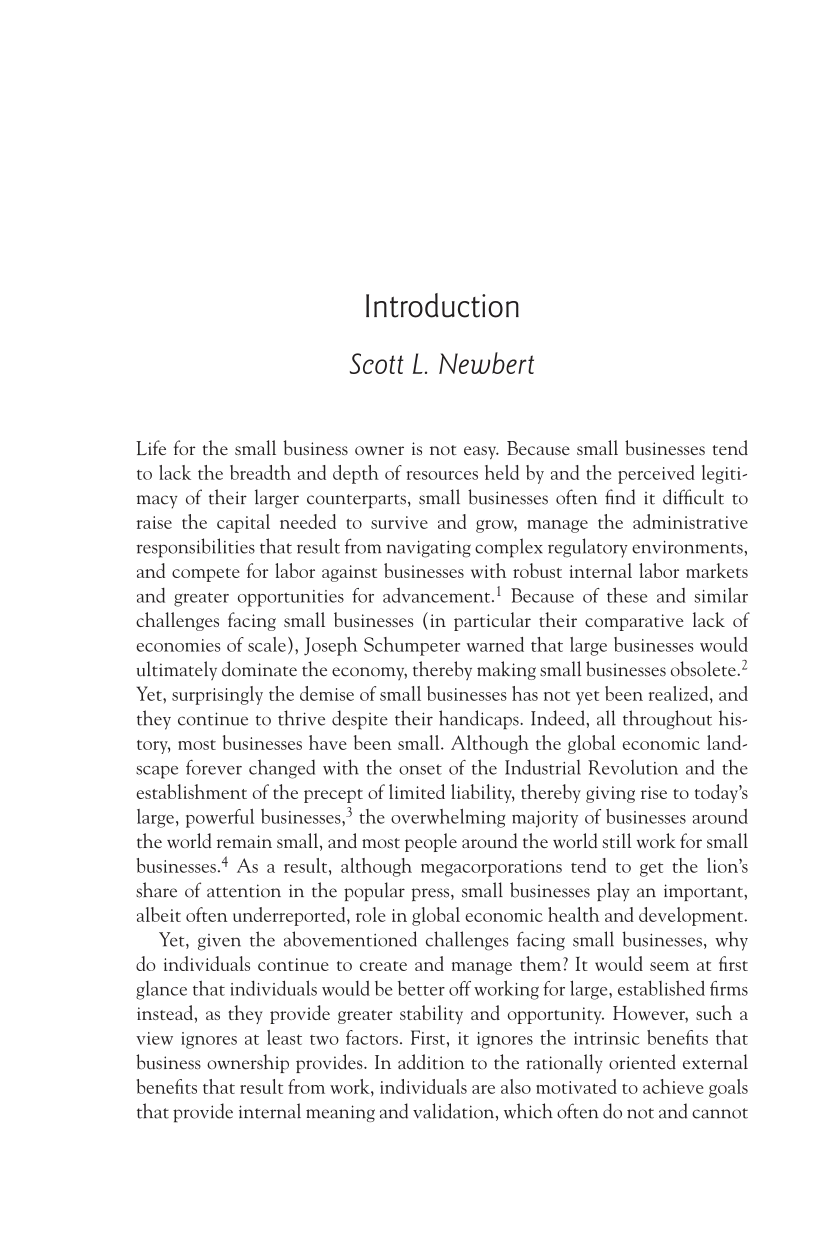Introduction
Scott L. Newbert
Life for the small business owner is not easy. Because small businesses tend
to lack the breadth and depth of resources held by and the perceived legiti-
macy of their larger counterparts, small businesses often find it difficult to
raise the capital needed to survive and grow, manage the administrative
responsibilities that result from navigating complex regulatory environments,
and compete for labor against businesses with robust internal labor markets
and greater opportunities for advancement.1 Because of these and similar
challenges facing small businesses (in particular their comparative lack of
economies of scale), Joseph Schumpeter warned that large businesses would
ultimately dominate the economy, thereby making small businesses obsolete.2
Yet, surprisingly the demise of small businesses has not yet been realized, and
they continue to thrive despite their handicaps. Indeed, all throughout his-
tory, most businesses have been small. Although the global economic land-
scape forever changed with the onset of the Industrial Revolution and the
establishment of the precept of limited liability, thereby giving rise to today’s
large, powerful businesses,3 the overwhelming majority of businesses around
the world remain small, and most people around the world still work for small
businesses.4 As a result, although megacorporations tend to get the lion’s
share of attention in the popular press, small businesses play an important,
albeit often underreported, role in global economic health and development.
Yet, given the abovementioned challenges facing small businesses, why
do individuals continue to create and manage them? It would seem at first
glance that individuals would be better off working for large, established firms
instead, as they provide greater stability and opportunity. However, such a
view ignores at least two factors. First, it ignores the intrinsic benefits that
business ownership provides. In addition to the rationally oriented external
benefits that result from work, individuals are also motivated to achieve goals
that provide internal meaning and validation, which often do not and cannot


























































































































































































































































































































































































































































































































































































































































































































































